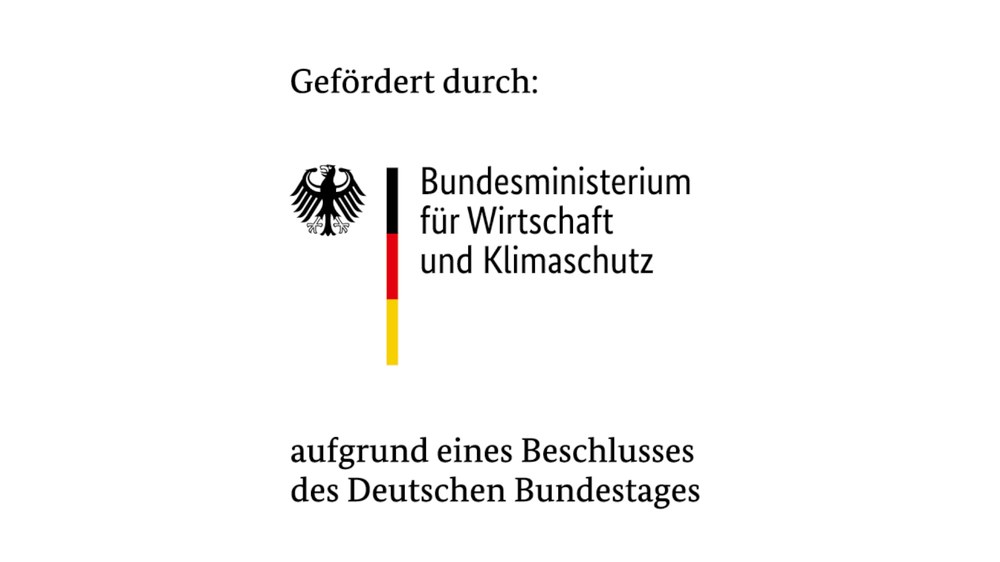Joint project TurboHyTec
Turbomachines are the central elements in numerous energy storage applications and industrial processes and are also used in processes for the production of synthetic green fuels. This applies in particular to process compressors and expanders for the associated cycle processes. In future, these will be used in new thermodynamic cycles and must be able to be operated with alternative working media such as hydrogen. For hydrogen in particular, suitable compression and expansion units must be developed for storage and distribution, for example in pipeline networks, if hydrogen produced from surplus shares of renewable energy supply is to gain in importance as a storage medium for the green electrification of all sectors in the future.
Traditional thermal power plants will continue to be indispensable in the future in order to compensate for fluctuations in the volatile energy sources of sun and wind. In addition to operational and fuel flexibility, this sector will continue to demand the highest levels of efficiency from the plants and their components in order to meet the high price of electricity recovery from renewable fuels.
The following conclusions can be drawn from the further expansion of renewable energy conversion plants:
The expansion of renewable energies also requires a significant expansion of energy storage capacities to ensure grid stability. This must be done on a scale that far exceeds the technically mature storage technologies available to date (pumped storage; batteries). In addition to mechanical (LAES; CAES) and thermal storage, in which turbomachinery is used without exception for new cycle processes, this also includes chemical power-to-gas storage, for example with green hydrogen.
Thermal power plants must provide reserve energy to compensate for fluctuations in renewables in order to supply power on demand and stabilise the grid. This means that the power plants and their turbomachinery must have maximum operational flexibility.
In addition to the generation of electricity for all sectors, the generation of heat for industrial applications and for the regional supply of district heating networks plays a particularly important role. The use of CCGT and CHP plants means that plants with the highest levels of efficiency and fuel utilisation rates are available for this purpose.
The transition from preventive to predictive maintenance will increasingly require the use of highly developed numerical and material technology processes in order to be able to predict the service life of power plant turbines more reliably for the expected highly cyclical operating modes. This requires, among other things, the development of digital twins that can be operated in parallel to real operation and can evaluate deviations online.

MAN Energy Solutions SE
Work packages
The joint project is divided into four thematically overarching work packages in which the development of turbo components for different areas of application in the new energy mix is being driven forward. The work packages of the TurboHyTec joint project carried out by the Turbo working group address the aforementioned aspects and thus contribute to fulfilling the objectives of the 7th Energy Research Programme "Innovations for the Energy Transition".
WP 1: Hydrogen applications
For the realisation of a hydrogen energy infrastructure, both compressors for hydrogen transport and gas turbines for hydrogen reconversion are being considered in the "Hydrogen applications" work package. The main focus here is on innovative manufacturing processes and the use of new materials. In addition, topics that optimise combustion in a gas turbine when using hydrogen are being addressed.
WP 2: Energy storage
Alongside hydrogen, "energy storage" is the second major central element for realising the energy transition. For this reason, compressor components for use as heat pumps and expansion turbines as components of energy storage systems are being developed in this second work package.
WP 3: Flexibilisation
In addition to a sustainable power supply, the provision of green heat is essential for industry. In order to be able to adapt existing heat supply systems and innovative thermal energy storage systems to the future flexible operation that will inevitably arise when interacting with renewable energy supply, such tasks are being carried out on compressors and turbines in the "Flexibilisation" work package. The topic of flexibilisation has already been dealt with intensively in previous AG Turbo programmes, but the focus to date has been primarily on power generation. A new focus is now being added in the form of heat supply.
WP 4: Digitisation
The aim is to achieve end-to-end digitalisation for the design, product creation and operation of turbomachinery and its components. This will result in adjustments to the processes with greater virtualisation and more extensive simulation approaches across the entire product development process and the operation of the systems. Interdisciplinary simulations are to be used in the early project phases. These topics are addressed in the "Digitalisation" work package.
Project structure

Facts and figures
Volumen
13.810 k€
Project duration
01.09.2023 - 31.03.2027

BMWK

